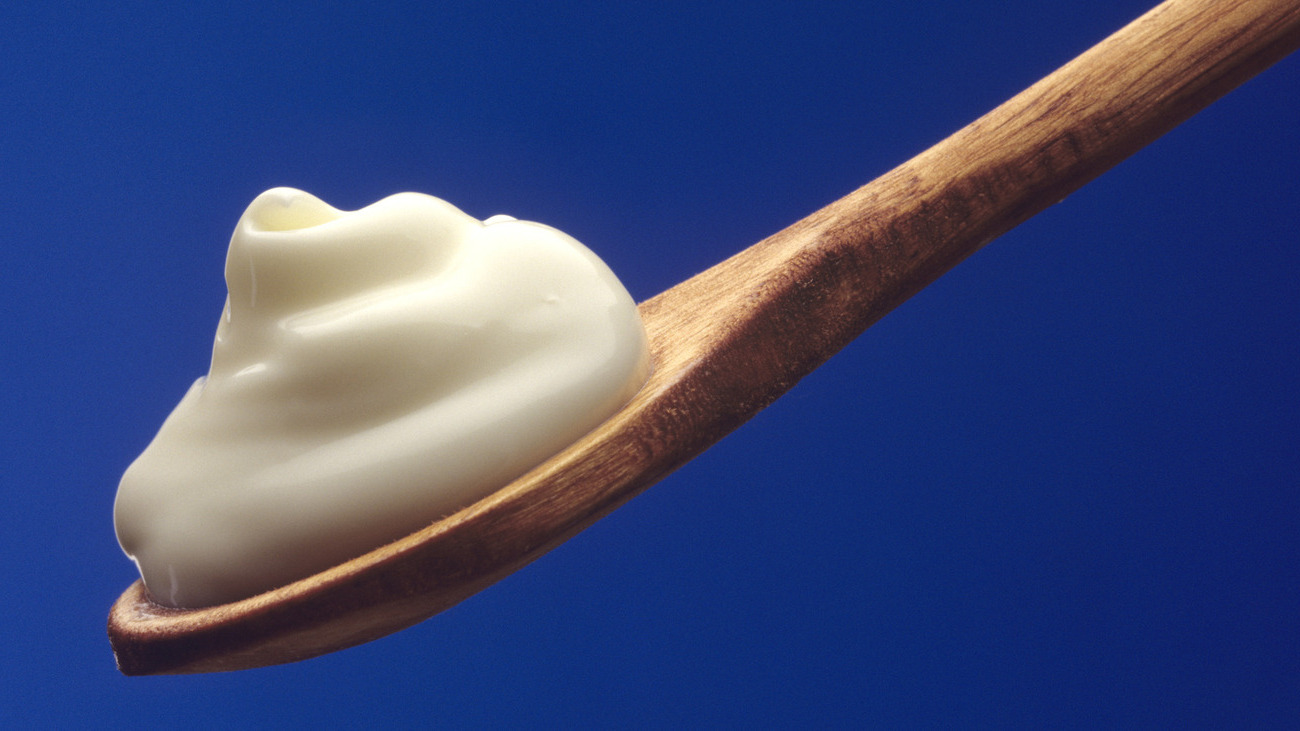
Ever wondered if that creamy dollop of mayonnaise on your sandwich is more than just a tasty condiment? Mayonnaise isn't just for adding flavor to your dishes; it's packed with nutrition facts that might surprise you. From its calorie count to its vitamin content, there's a lot to uncover about this popular spread. But how does it stack up nutritionally? Is it a friend or foe to your diet? In this engaging read, we'll peel back the layers of mayonnaise, revealing 20 nutrition facts that could change the way you view this common kitchen staple. Get ready to be intrigued as we delve into the world of mayonnaise, where every scoop tells a story.
Key Takeaways:
- Mayonnaise is a creamy sauce made of oil, egg yolks, and acid. It's high in calories and fats, but some types offer heart-healthy omega-3s and lower cholesterol options.
- Mayonnaise has different varieties like low-fat, olive oil, and vegan options. It's used in salad dressings, sandwiches, and even baking. Despite its high calorie and fat content, it's a popular condiment worldwide.
What Exactly Is Mayonnaise?
Mayonnaise, often a staple in kitchens and restaurants around the globe, is a thick, creamy sauce or dressing. It's made by emulsifying oil, egg yolks, and an acid, usually vinegar or lemon juice. But beyond its basic ingredients, mayonnaise holds a variety of nutritional facts that might surprise you.
Nutritional Profile of Mayonnaise
-
Calories: A single tablespoon of mayonnaise contains about 94 calories, making it a high-calorie food item. This is crucial for individuals monitoring their calorie intake.
-
Fat Content: With approximately 10 grams of fat per tablespoon, mayonnaise is rich in fats, predominantly unsaturated fats, which are considered healthier than saturated fats.
-
Vitamins and Minerals: Mayonnaise provides small amounts of vitamins E and K, along with potassium. These nutrients contribute to various bodily functions, including blood clotting and antioxidant protection.
Health Considerations
-
Cholesterol Levels: Due to its egg yolk content, mayonnaise can be high in cholesterol. One tablespoon contains about 5 milligrams of cholesterol.
-
Sodium Content: Store-bought mayonnaise often contains added salt, contributing to its sodium content. A tablespoon can have up to 90 milligrams of sodium.
-
Omega-3 Fatty Acids: Some mayonnaise types are made with oils rich in omega-3 fatty acids, beneficial for heart health.
Mayonnaise Varieties and Their Nutritional Differences
-
Low-Fat Mayonnaise: This variety contains fewer calories and fat compared to regular mayonnaise, making it a preferable option for those on a diet.
-
Olive Oil Mayonnaise: Made with olive oil, this type is higher in monounsaturated fats, known for their heart-healthy benefits.
-
Vegan Mayonnaise: Vegan versions of mayonnaise replace egg yolks with plant-based ingredients, often resulting in lower cholesterol and saturated fat levels.
Culinary Uses and Tips
-
Salad Dressings: Mayonnaise is a key ingredient in many salad dressings, adding creaminess and flavor.
-
Sandwich Spreads: Its thick texture makes mayonnaise an ideal spread for sandwiches, enhancing moisture and taste.
-
Baking: Surprisingly, mayonnaise can be used in baking to add moisture to cakes and other baked goods.
Interesting Facts About Mayonnaise
-
Origin: Mayonnaise is believed to have originated in France or Spain in the 18th century. Its creation is often attributed to the need for a creamy sauce to enhance food flavors.
-
World Records: The largest jar of mayonnaise ever made weighed over 2,500 pounds and was created in the United States.
-
Cultural Significance: In Japan, mayonnaise is used in a variety of dishes, including on pizza and as a topping for ice cream, showcasing its versatility in culinary traditions around the world.
-
Homemade vs. Store-Bought: Homemade mayonnaise often contains fewer preservatives and additives than its store-bought counterpart, offering a fresher taste and potentially healthier option.
-
Shelf Life: Unopened mayonnaise can last up to a year when stored in a cool, dry place. Once opened, it should be refrigerated and used within two months for best quality.
-
Healthier Alternatives: For those looking to reduce calorie and fat intake, alternatives like yogurt or mashed avocado can serve as substitutes in recipes calling for mayonnaise.
-
Allergies and Intolerances: Individuals with egg allergies or those following a vegan diet should opt for egg-free mayonnaise varieties to avoid adverse reactions.
-
Global Consumption: Despite its high calorie and fat content, mayonnaise remains one of the most popular condiments worldwide, with millions enjoying its unique flavor and creamy texture in various dishes.
A Spoonful of Mayo Insights
Mayonnaise, often just a condiment for many, holds more beneath its creamy surface than meets the eye. From its rich history to its nutritional profile, mayo isn't just about flavor; it's about choices. Opting for versions with healthier oils can turn a simple spread into a beneficial addition to meals. Yet, moderation remains key due to its calorie density. Understanding the nutritional facts about mayonnaise empowers you to make informed decisions, blending taste and health in every dollop. Whether you're crafting a sandwich or dressing a salad, remember, the type of mayo matters as much as how much you use. So, next time you reach for that jar, think about what's inside and how it fits into your diet. Mayo doesn't have to be a dietary villain; with knowledge and balance, it can find a place in a health-conscious kitchen.
Frequently Asked Questions
Was this page helpful?
Our commitment to delivering trustworthy and engaging content is at the heart of what we do. Each fact on our site is contributed by real users like you, bringing a wealth of diverse insights and information. To ensure the highest standards of accuracy and reliability, our dedicated editors meticulously review each submission. This process guarantees that the facts we share are not only fascinating but also credible. Trust in our commitment to quality and authenticity as you explore and learn with us.


